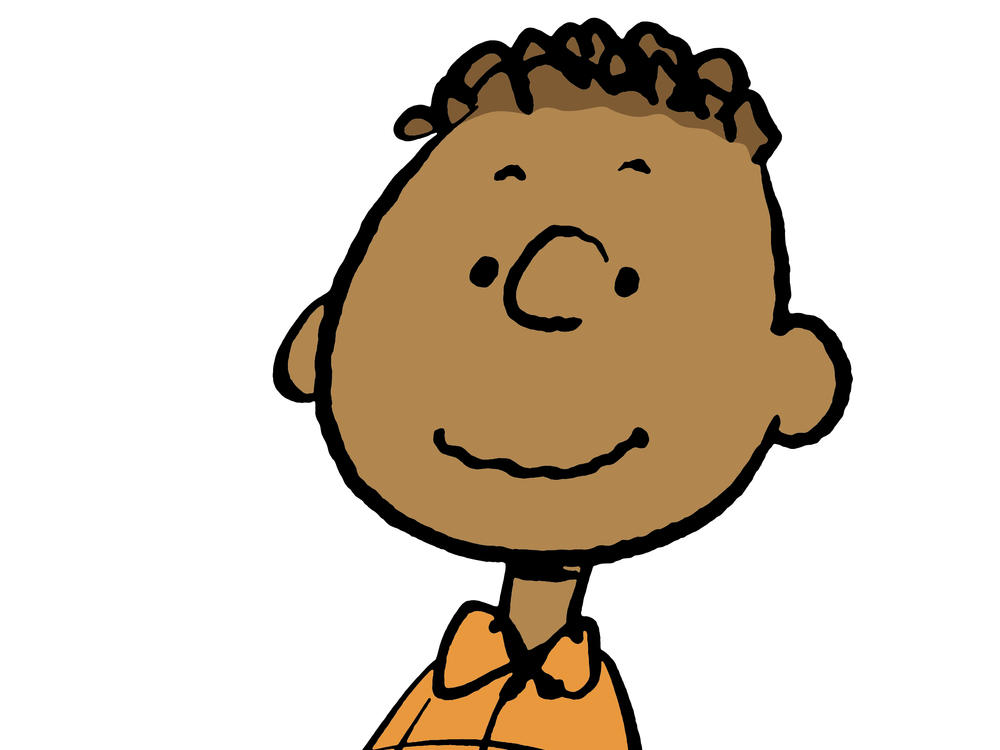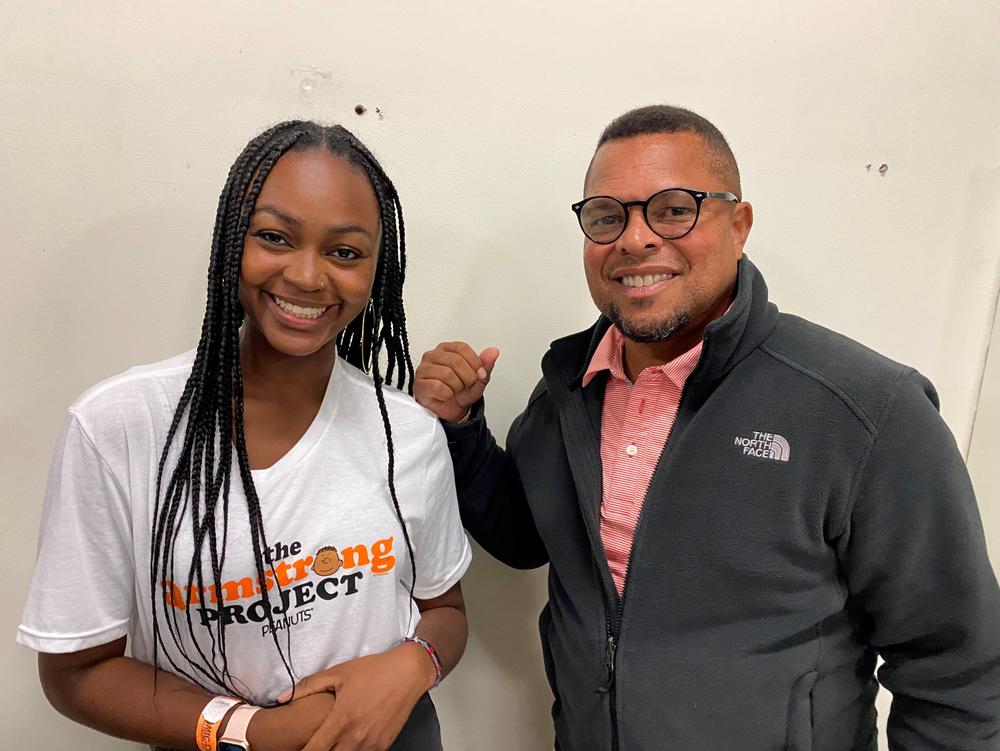Section Branding
Header Content
A project named for 'Peanuts' character Franklin aims to boost Black animators
Primary Content
In 1968, Charles M. Schulz introduced the first Black character to his famous comic strip; Franklin joined Charlie Brown, Snoopy and the rest of the Peanuts gang.
Over the years, the low-key, friendly character was an inspiration to generations of Peanuts fans. Now, more than half a century later, Peanuts Worldwide has created The Armstrong Project in his honor to support up-and-coming Black writers, animators and cartoonists.
The new initiative was introduced at a pop-up exhibition at Comic-Con in San Diego. It was a rare meet-up of Black cartoonists, animators and fans. Among them was animator Bruce W. Smith.
"Seeing Franklin was sort of like a revelation, 'cause here's a character that represents you," recalled Smith, creator of Disney's The Proud Family series. "The first time I saw him on a special, he's dancing. That meant something to a lot of us, and certainly inspired my path as an artist."
According to the Census and the Bureau of Labor Statistics, fewer than 4% of animators are African American. "When I came into the industry I was one of only four African-Americans in the business," said cartoonist Robb Armstrong, who teamed up with Peanuts Worldwide to try to improve those numbers.
California school teacher Harriet Glickman came up with the idea of integrating the Peanuts comics. In 1968, shortly after the assassination of Dr. Martin Luther King Jr., Glickman wrote a letter to Schulz.
"I've been asking myself what I can do to help change those conditions in our society which led to the assassination and which contribute to the vast sea of misunderstanding fear, hate and violence," she wrote. "It occurred to me today that the introduction of Negro children into the group of Schulz characters ... would help in shaping the unconscious attitudes of our kids."
A few months later, Schulz introduced Franklin in a Peanuts comic strip in which he plays on a beach with Charlie Brown. It was a symbolic gesture at a time of racial turmoil for the country. Franklin's debut was also a milestone for Robb Armstrong, who was a six-year-old in West Philadelphia at the time. The same day Franklin appeared, Armstrong's 13-year-old brother was killed in a subway accident. Armstrong said it was a sign that he should pursue his dream of becoming a cartoonist.
By 1990, Armstrong's comic strip JumpStart was syndicated, and he became friends with his childhood idol, Charles "Sparky" Schulz. A few years later, Schulz called to ask him about Franklin.
"He says, 'He has no last name. It's not good. It's not respectful to him as a character. Can I use your last name?' I said, 'Sparky yes, of course.'"
Now, Armstrong wants to pay it forward. With the Armstrong Project, he'll provide internships and guidance to students. He said he'll remind them that cartooning "is not the same as doodling in math class."
The Armstrong Project also has a $200,000 endowment to give scholarships for students at historically Black colleges.
"Mr. Armstrong says to start with dynamic characters. So I just want to start there and see where it takes me," said Promise Robinson, a 21-year-old student at Hampton University and one of the first Armstrong Project recipients. "I'm definitely looking to be very inclusive in my stories."
"If Franklin had never been introduced to the Peanuts series, I can't fathom how different my life would be," said Hailey Cartwright, a 19-year-old student at Howard University, the other Armstrong Project recipient. "If he wasn't there, in the direction I want to take my career, in animation, would I even have a chance? I just wonder."
At the event during Comic-Con, Bruce W. Smith gave Cartwright and Robinson some advice. "Everyone's looking for more diverse projects, more diverse characters to lead their storytelling," he said. "That's why it's the perfect time for you guys to have your voice included in this."
Copyright 2022 NPR. To see more, visit https://www.npr.org.



